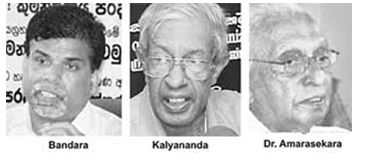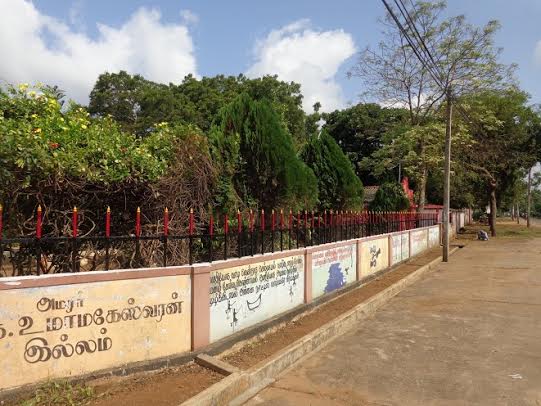SC proposed on the lines of Constitutional Court
TNA-led House Committee recommendations out
November 10, 2016, 10:31 pm
By Shamindra Ferdinando
 An eleven-member parliamentary Sub-Committee has recommended the setting up of a Constitutional Court to settle disputes between the government and the regions (Provinces) as well as among the regions (Provinces).
An eleven-member parliamentary Sub-Committee has recommended the setting up of a Constitutional Court to settle disputes between the government and the regions (Provinces) as well as among the regions (Provinces).
The Sub-Committee headed by TNA MP Dharmalingam Siddarthan has asserted that Constitutional Court was required as powers currently enjoyed by Governors would be abolished.
The Sub-Committee on Centre-Periphery Relations has proposed the Constitutional Court to be represented by all communities, the Federation of National Organizations (FNO) alleged yesterday.The Sub Committee led by the former PLOTE leader is one of the six set up to facilitate a Steering Committee headed by Prime Minister Wickremesinghe to formulate a Draft Constitution.
Addressing the media at the National Library and Documentation Services Board, FNO representative Dr. Wasantha Bandara and attorney-at-law Kalyananda Thiranagama alleged that MP Dharmalingham’s Sub-Committee had made a series of far reaching recommendations. Controversial proposals included that the Supreme Court too should be established on the lines of the Constitutional Court.
An irate Thiranagama said that the implementation of Siddarthan’s proposals would result in the division of the country on ethnic lines.
The Sub-Committee has dealt with relationship between the Centre and Provincial Councils, Local Authorities, provincial executive, competencies of the centre, provinces and Local Authorities, administrative structure (District Secretaries, Divisional Secretaries) et al.
The FNO pointed out that the TNA MP’s grouping comprised members of the ruling coalition, the TNA, JVP as well as the Joint Opposition.
Dr Bandara said they had been able to obtain a copy though the parliament was yet to officially acknowledge the finalisation of the report.
Thiranagama said the government would be weakened to such an extent it couldn’t thwart the separatist project undertaken by those hell-bent on avenging the defeat of the LTTE. The attorney-at-law alleged that the parliament would be deprived of the authority and power to intervene in case of an emergency. According to FNO, the provincial councils were likely to receive the following powers in case the Steering Committee succeeded in its project.
Likely key changes: (1) Centre’s power to bring Provincial Administrations under direct rule to be subjected to judicial review (2) Centre to lose power on ‘national policy on all subjects and functions (3) police powers to be exercised by Provincial Administrations (4) Provincial Administrations to take over land (5) Concurrent List to be abolished (6) Governor deprived of existing powers (7) Constitutional Court to review Provincial Statues (8) District and Divisional Secretariats under Provincial Administrations.
The FNO alleged that the majority of members of the Sub Committee hadn’t been able to understand what was going on.
The grouping pledged a public campaign to thwart the political project.
Thiranagama claimed that the current administration, the TNA and the Diaspora had reached agreement on the division of the country in Singapore in 2013. The attorney-at-law alleged that the Singapore agreement was being implemented now. Asked to explain what prompted former President Mahinda Rajapaksa to call for presidential polls two years before schedule thereby facilitating anti-Sri Lanka project, Thiranaga asserted the former President acted on wrong advice. (Thanks : The Island 11.11.2016)
